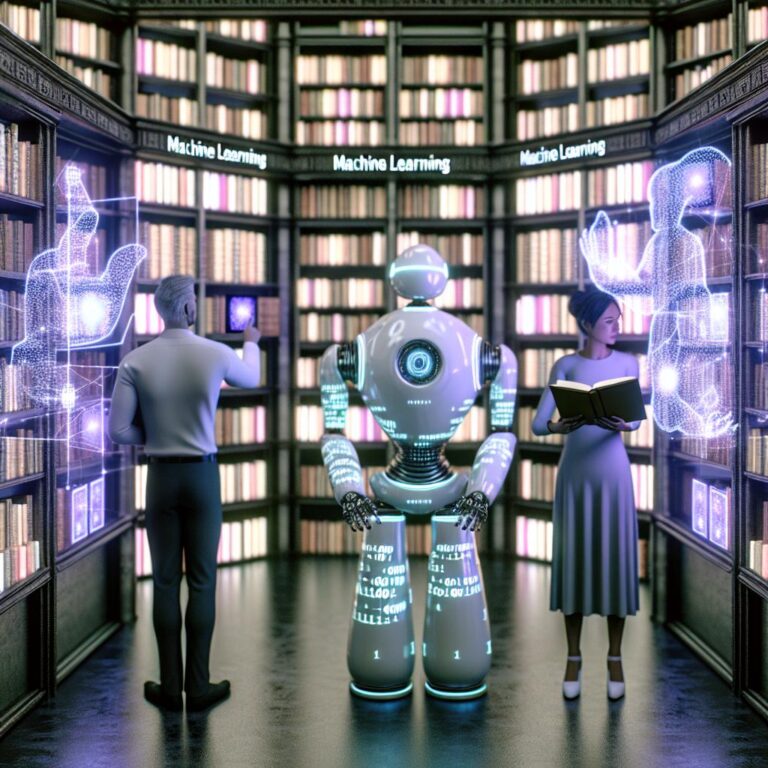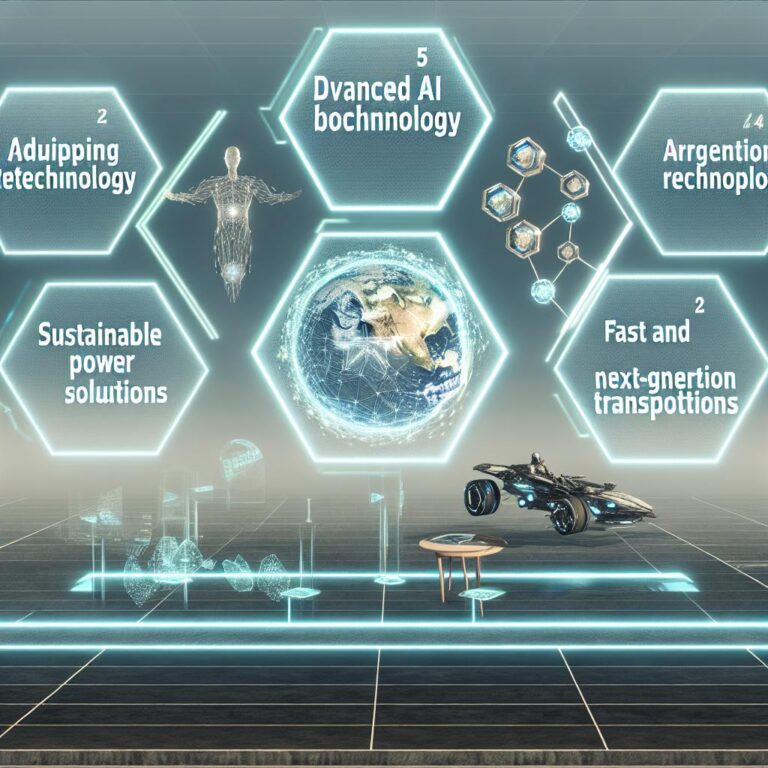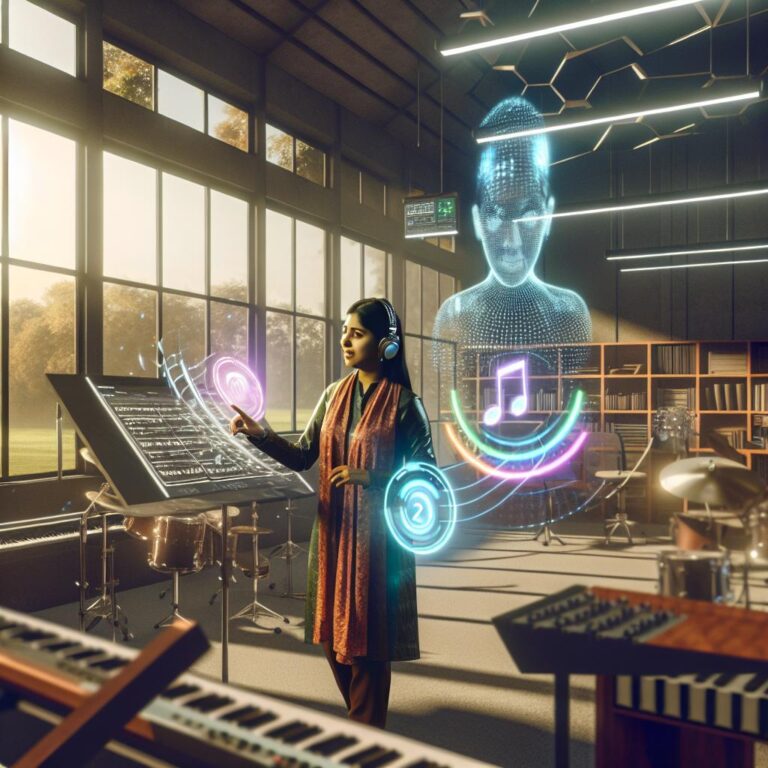
Technology is evolving at an unprecedented pace, transforming every aspect of our daily lives. From artificial intelligence to quantum computing, advancements are reshaping industries and pushing the boundaries of what is possible. In this article, we will explore the key innovations driving the future of technology and how they are influencing various sectors.
Artificial Intelligence and Machine Learning
Artificial intelligence (AI) and machine learning (ML) are at the forefront of technological evolution. AI-powered systems are enhancing automation, enabling smart decision-making, and revolutionizing customer experiences. Staying updated with the latest advancements through Wheon News can help businesses and individuals navigate the rapidly changing tech landscape. Industries such as healthcare, finance, and e-commerce are leveraging AI for personalized services and predictive analytics.
- Healthcare: AI-powered diagnostics and robotic surgeries are improving patient outcomes. AI algorithms can analyze medical images faster than human radiologists, aiding in early disease detection.
- Finance: AI-driven algorithms detect fraudulent activities, automate trading, and provide personalized financial recommendations.
- Retail: AI chatbots and recommendation engines enhance user experience, helping businesses increase engagement and sales.
Quantum Computing: The Next Frontier
Quantum computing is set to revolutionize data processing capabilities. Unlike classical computers, which use binary bits (0s and 1s), quantum computers utilize qubits, enabling them to perform complex calculations at unimaginable speeds. Staying informed with insights from Similar Times can help you understand the latest advancements in quantum technology and its potential impact on various industries.
Potential Impact of Quantum Computing:
- Cryptography: Quantum computers can break conventional encryption methods, necessitating the development of quantum-safe cryptography.
- Drug Discovery: Pharmaceutical companies can use quantum simulations to accelerate drug development, reducing the time needed to bring new treatments to market.
- Optimization Problems: Industries such as logistics and finance can leverage quantum computing to optimize supply chains and investment portfolios.
The Rise of 5G and Beyond
The rollout of 5G networks is set to transform connectivity, offering faster speeds, lower latency, and enhanced capacity. This next-generation network will drive innovation across multiple sectors:
- Autonomous Vehicles: 5G enables real-time data exchange between vehicles and infrastructure, enhancing road safety and traffic management.
- Smart Cities: IoT devices connected through 5G networks improve energy efficiency, waste management, and public safety.
- Remote Work and Education: High-speed connectivity facilitates seamless video conferencing, cloud collaboration, and e-learning experiences.
Internet of Things (IoT) and Smart Devices
The Internet of Things (IoT) continues to expand, connecting billions of devices worldwide. Exploring insights from Alternatives Times can help you stay updated on the latest IoT advancements and their impact on daily life. Smart homes, wearable technology, and industrial automation are benefiting from IoT-driven innovations.
- Smart Homes: IoT-powered smart devices, such as thermostats, security cameras, and voice assistants, provide convenience and energy efficiency.
- Healthcare Wearables: Devices like smartwatches and fitness trackers monitor health metrics, enabling proactive healthcare management.
- Industrial Automation: IoT sensors in manufacturing streamline operations, reduce downtime, and optimize production processes.
Blockchain Technology: Beyond Cryptocurrencies
While blockchain is widely associated with cryptocurrencies, its applications extend far beyond digital finance. Blockchain offers transparency, security, and decentralization, making it valuable for various industries.
- Supply Chain Management: Blockchain ensures traceability and authenticity in supply chains, reducing fraud and inefficiencies.
- Healthcare Records: Decentralized health records enhance patient data security and accessibility.
- Digital Identity: Blockchain-based identity solutions prevent fraud and improve online security. For more insights on emerging technologies, visit Ncespro.
The Evolution of Augmented Reality (AR) and Virtual Reality (VR)
AR and VR technologies are reshaping entertainment, education, and workplace experiences. These immersive technologies provide interactive simulations and enhance real-world interactions.
- Gaming and Entertainment: AR and VR deliver realistic gaming experiences, enabling users to explore virtual worlds.
- Training and Education: Virtual simulations train medical professionals, pilots, and engineers in risk-free environments.
- Retail and E-commerce: AR allows customers to visualize products in real time before
Sustainable Technology and Green Innovations
As climate change concerns grow, technology is playing a crucial role in sustainability efforts. Innovations in renewable energy, electric vehicles, and eco-friendly manufacturing processes are driving the green revolution.
- Renewable Energy: Advances in solar, wind, and hydrogen power are making clean energy more accessible and affordable.
- Electric Vehicles (EVs): Battery technology improvements are increasing the efficiency and range of EVs, reducing reliance on fossil fuels.
- Circular Economy: Companies are embracing sustainable production practices, recycling materials, and minimizing waste.
Biotechnology and Genetic Engineering
The intersection of technology and biology is unlocking groundbreaking possibilities in healthcare and agriculture. CRISPR gene-editing technology is enabling precise modifications in DNA, paving the way for medical and agricultural advancements.
- Personalized Medicine: Genetic analysis helps tailor treatments to individual patients, improving efficacy and reducing side effects.
- Agricultural Innovation: Genetically modified crops enhance food security and resistance to environmental stressors.
- Bioprinting: 3D bioprinting of human tissues and organs holds potential for organ transplants and regenerative medicine.
Cybersecurity and Data Privacy
With increased digitalization comes the challenge of cybersecurity threats and data breaches. Companies are investing in advanced security measures to protect user data and prevent cyberattacks.
- AI-Powered Security: Machine learning algorithms detect and respond to cyber threats in real time.
- Zero Trust Architecture: Businesses are adopting security frameworks that require continuous verification for access control.
- Privacy Regulations: Governments are enforcing data protection laws to enhance user privacy and security.
The Role of Technology in Business and Innovation
Businesses are leveraging digital transformation strategies to remain competitive in the evolving technological landscape. Cloud computing, automation, and AI-driven insights are enabling companies to enhance productivity and efficiency.
- Remote Work Solutions: Collaboration tools and cloud-based platforms support distributed teams.
- E-commerce Growth: Digital payment systems and AI-driven marketing are boosting online sales.
- Innovation Hubs: Companies are investing in research and development to drive continuous innovation.
Conclusion
As technology continues to advance, its impact on society, businesses, and daily life will only grow. From AI-powered automation to sustainable innovations, the future holds immense possibilities. Staying informed about technological trends is essential for businesses and individuals alike to adapt and thrive in the digital age.






